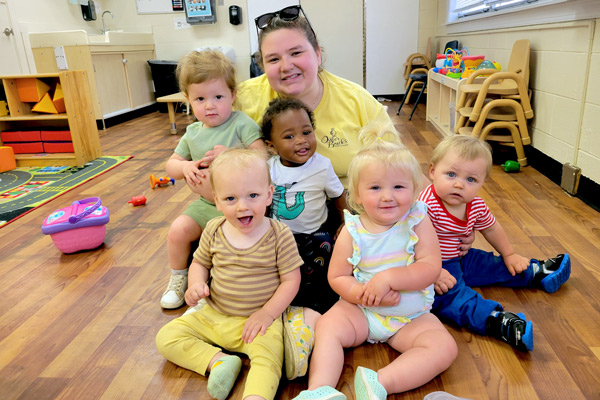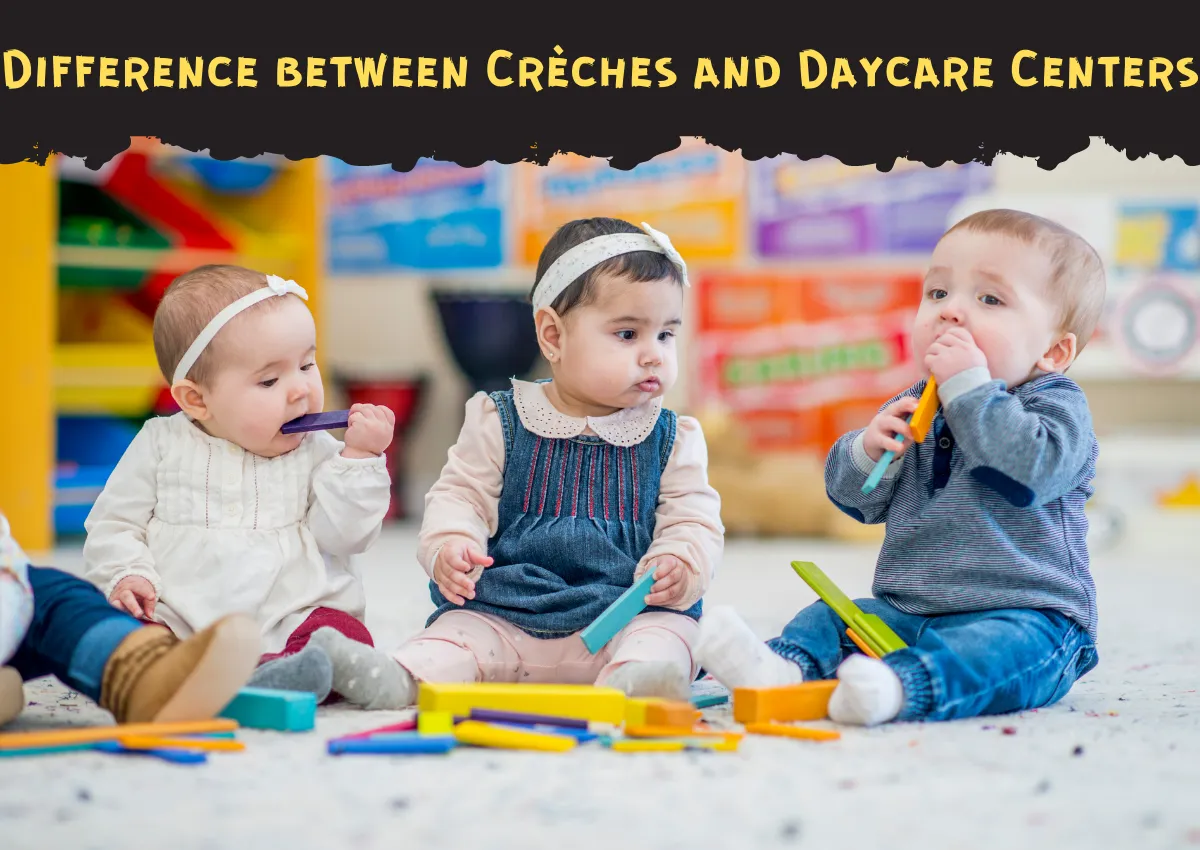Recognizing the Relevance of Childcare for Your Toddler's Social Development and Knowing Experiences Via Involving Tasks
The relevance of day care in forming a young child's social advancement and knowing can not be overstated, as it offers a structured atmosphere loaded with engaging activities that are essential for very early growth. These experiences not just improve social communication but additionally act as a crucial platform for creating interaction abilities, emotional policy, and strength. Comprehending exactly how these components adjoin can offer insight right into fostering freedom and self-confidence in children. As we check out the complex advantages of childcare, one need to take into consideration how these foundational experiences influence a child's future social communications and overall growth.

Benefits of Social Interaction
Social interaction plays a critical duty in the developmental trajectory of kids, serving as a foundation for vital social abilities. Engaging with peers enables toddlers to exercise communication, discover to reveal their emotions, and develop empathy. Through shared play and participation, they start to comprehend social norms, such as taking turns and sharing, which are important elements of effective interpersonal relationships.
In addition, social interactions add to cognitive advancement. As kids interact with their peers, they enhance their language abilities, broaden their vocabulary, and enhance their ability to express sensations and ideas. This exchange of ideas fosters critical thinking, as children find out to discuss, solve troubles, and navigate problems.
In addition, social interaction promotes emotional guideline. Direct exposure to various social circumstances helps young children acknowledge and manage their emotions, inevitably resulting in higher durability and adaptability. The capability to develop add-ons and relationships also boosts their sense of belonging and self-confidence, which are important for total well-being.
Significance of Engaging Tasks
Involving tasks are necessary for fostering a stimulating environment that improves toddlers' social development. These tasks not only captivate young kids's interest yet likewise advertise active participation, enabling them to discover their surroundings creatively. Via play-based understanding, young children develop vital skills such as problem-solving, teamwork, and compassion, every one of which are crucial for developing healthy and balanced partnerships with peers.
Taking part in appealing activities, such as team games, art jobs, and interactive storytelling, encourages young children to reveal their sensations and ideas. This expression is vital for psychological intelligence and aids them comprehend the point of views of others. Moreover, when kids involve in these tasks together, they discover to bargain duties, share sources, and work together, which are basic elements of social communication.
In addition, a well-structured atmosphere that includes stimulating and varied activities helps in maintaining kids inspired and concentrated. This motivation fosters a love for finding out and expedition, laying the foundation for future educational experiences. Inevitably, involving activities in daycare settings are critical fit social skills, preparing kids for effective communications past the class, and supporting their general growth throughout these developmental years.
Developing Interaction Abilities
Reliable interaction abilities are important for kids as they browse their early social communications. In a childcare setup, youngsters are revealed to varied social situations that motivate spoken and non-verbal communication. Talking with caretakers and peers cultivates language growth, allowing toddlers to express their feelings, requirements, and ideas better.

Moreover, daycare environments provide opportunities for toddlers to observe and imitate communication designs of their peers and adults. This empirical discovering is important as youngsters choose up on social signs, tone, and body movement, which are necessary elements of reliable communication.
Cultivating Independence and Self-confidence
As kids improve their interaction abilities, they at the same time begin to explore their independence and build confidence in social setups (infant daycare near me). Daycare gives an organized environment where children can take part in numerous tasks that urge freedom. From choosing their own activities to taking part in team tasks, these experiences equip toddlers to choose and share themselves
In a daycare setting, children are usually provided with opportunities to address issues independently, whether it's identifying exactly how to share playthings or solving disputes with peers. This promotes vital reasoning and advertises self-direction. Additionally, caretakers support this growth by providing positive support and advice, helping kids to navigate social communications with self-confidence.

Team tasks, such as participating games or collaborative art jobs, promote teamwork and teach toddlers the relevance of functioning together. Through these communications, kids find out to connect their thoughts and feelings, further improving their self-worth and social abilities.
Ultimately, promoting freedom and self-confidence in daycare not only prepares kids for future social environments however also prepares for a resilient frame of mind, equipping them with essential life abilities as they continue to expand and discover.
Structure Lifelong Learning Foundations
A solid structure for long-lasting baby daycare near me learning is essential for young children, as their very early experiences form their attitudes towards education and inquisitiveness. Day care settings play a crucial duty in this developmental phase by offering organized opportunities for expedition and interaction. Involving activities, such as group play, arts and crafts, and interactive narration, promote cognitive development while encouraging social communication.
Through these experiences, toddlers find out necessary skills such as problem-solving, interaction, and participation. They are introduced to the principle of learning as an enjoyable, collective procedure as opposed to a task, which fosters a favorable perspective in the direction of education. Exposure to diverse perspectives and peer interactions in day care settings improves psychological knowledge, advertising compassion and strength.
Caregivers and teachers likewise add dramatically to building this foundation by modeling curiosity and excitement for discovering. By motivating concerns and promoting conversations, they produce get redirected here a setting where kids really feel risk-free to reveal themselves and explore originalities. Eventually, the combination of helpful partnerships and engaging activities in childcare setups prepares for a long-lasting love of knowing, equipping young children with the abilities and frame of mind essential for future academic and individual success.
Final Thought

The value of daycare in forming a kid's social growth and understanding can not be overstated, as it provides a structured environment filled up with engaging tasks that this page are critical for early development.Social interaction plays a vital duty in the developmental trajectory of toddlers, offering as a structure for important social skills. When young children involve in these tasks together, they find out to work out duties, share sources, and team up, which are fundamental aspects of social communication.
Ultimately, involving tasks in day care settings are essential in forming social skills, preparing toddlers for successful communications past the class, and nurturing their overall development during these developmental years.
Eventually, the advantages of appealing activities in childcare setups play a significant function in preparing kids for future social interactions and obstacles. toddler daycare near me.